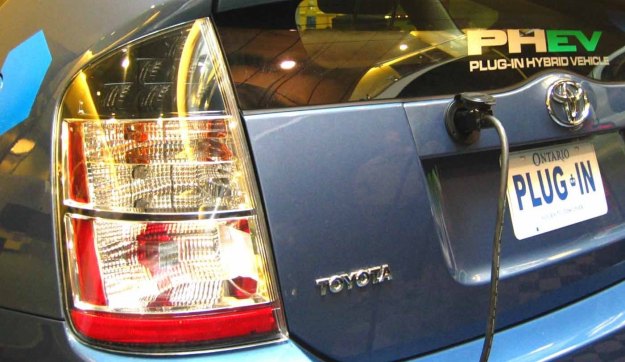
Announced at the Green Drive Expo in Richmond, California earlier today, the 2012 Toyota Prius Plug-in Hybrid utilizes a new 4.4 kilowatt-hour Lithium ion battery pack and allows owners to charge the vehicle with a standard wall outlet. Using a custom made charging pack, owners can fully recharge the vehicle in under three hours with a standard 120-volt outlet and cut that time in half using a 240-volt outlet. Toyota estimates that the Prius Plug-in will get 87 miles per gallon overall and 49 mph while in hybrid mode. The Prius Plug-in can operate on just battery power up to 15 miles at speeds up to 62 miles per hour, ideal for short trips around town.

In addition to the Prius Plug-in, Toyota also announced the Prius V, a version of the Prius with nearly 60 percent more cargo space than the Prius liftback. However, the mileage per gallon isn’t quite as impressive since the Prius V weighs an additional 300 pounds. The Prius V will get an estimated 42 miles per gallon, city and highway combined. The Prius V starts at $26,400 and ranges up to $29,990 depending on the model. Both models of the Prius will be available in October 2011.


